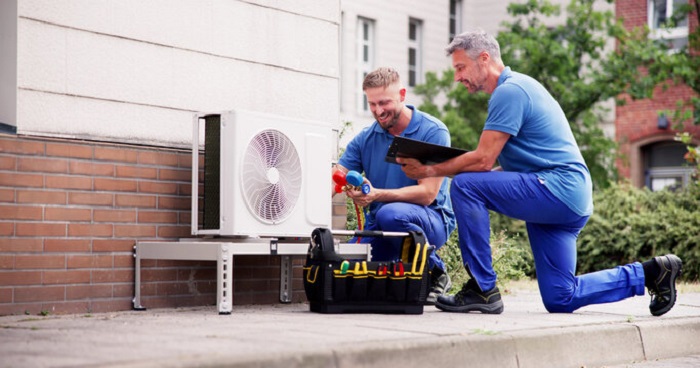When the summer heat arrives, few things are as essential as a properly functioning air conditioning system. An HVAC unit that runs efficiently not only keeps your home comfortable but also saves energy and reduces the risk of costly breakdowns. Regular HVAC maintenance is the key to reliable performance. Here are practical tips every homeowner can follow to prepare their system for the hottest months.
1. Replace or clean air filters regularly
Air filters trap dust, pollen, and other particles, preventing them from circulating indoors. Over time, these filters become clogged, restricting airflow and forcing the system to work harder. This can lead to higher energy bills and premature wear. For most households, filters should be replaced every 1–3 months, depending on usage and indoor air quality.
2. Check and clean condenser coils
The outdoor unit of your HVAC system contains condenser coils that release heat. When dirt, grass, or debris accumulate on these coils, heat exchange becomes less efficient. Cleaning the coils with a soft brush or a professional cleaning solution ensures the system can cool effectively.
3. Inspect ductwork for leaks
Leaky ducts allow cool air to escape before it reaches your living space, making the system work harder. Inspecting ducts for gaps or loose connections and sealing them with foil tape or mastic can improve efficiency by up to 20%.
4. Keep the outdoor unit clear
The condenser unit needs proper airflow to function well. Trim nearby bushes, remove debris, and maintain at least two feet of clearance around the unit. This simple step prevents overheating and prolongs the system’s life.
5. Check thermostat settings
Make sure your thermostat is calibrated and set at an efficient temperature. Programmable or smart thermostats can automatically adjust temperatures when you are away, reducing strain on the HVAC system and saving money.
6. Monitor refrigerant levels
Low refrigerant can significantly reduce cooling efficiency and cause the system to overheat. Signs include warm air from vents or ice forming on the refrigerant lines. Checking and refilling refrigerant should only be done by licensed professionals.
7. Inspect and clean the condensate drain
The HVAC system removes humidity from the air, which drains through a small line. If this drain becomes clogged, it can cause water leaks and humidity problems inside your home. Flushing the drain with vinegar or a cleaning solution prevents blockages.
8. Schedule professional maintenance
While basic tasks like filter replacement can be done at home, professional tune-ups are essential at least once a year. A technician can test system performance, check electrical connections, lubricate moving parts, and detect early signs of wear before they turn into major issues.
9. Listen for unusual noises
Rattling, buzzing, or grinding sounds are signs of mechanical problems. Catching these early allows for timely repairs, preventing system failure during peak summer use.
10. Don’t overwork the system
Keeping blinds closed during the hottest hours, using ceiling fans, and sealing windows and doors can reduce the workload on your HVAC system. This not only keeps your home cooler but also reduces energy consumption.


